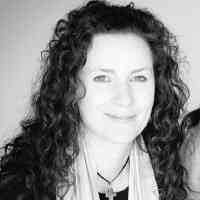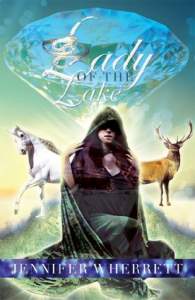 After completing a master’s degree in biostatistics, and working as a statistician, Jennifer realized she was hiding behind numbers and formulas instead of creating something wholly new. Now, in writing, she has found an outward expression for her passion for the themes of philosophy, mythology, and ancient esoteric traditions that she weaves into her writing, and she loves working with the magic of words and language.
After completing a master’s degree in biostatistics, and working as a statistician, Jennifer realized she was hiding behind numbers and formulas instead of creating something wholly new. Now, in writing, she has found an outward expression for her passion for the themes of philosophy, mythology, and ancient esoteric traditions that she weaves into her writing, and she loves working with the magic of words and language.
Why did you want to write a book?
Originally, I wanted to share with others what I was experiencing in terms of powerful inner transformation and transcendence. And I did end up doing exactly that because Lady of the Lake is, as I like to say, an autobiographical metaphor, or a metaphorical autobiography – whichever you prefer. I just ended up doing it in a way I did not expect and did not set out to do. What I ended up achieving with Lady of the Lake far exceeded my own expectations.
Would you self-publish again?
Absolutely. The publishing industry is quite rigid, and very fussy. It’s based on profit, and it follows definite and specific trends which usually don’t fit with what I’m writing. There is a wonderful freedom in self-publishing. I have self-published more books, and I will again . . . and again and again.
What do you think are the main pitfalls for indie writers?
When you’re starting out and you’re inexperienced, it’s easy to think all you have to do is write a book, publish it, and it will sell. Simple. Unfortunately, you learn the hard way, this is not so. No one’s going to buy your book if they don’t know about it. In fact, there are another two vital steps in the process – marketing and distribution. Distribution costs big money, and marketing requires skills that writers don’t really possess. You can end up throwing a lot of money at marketing with no reward, even if you know your market. The industry in general, and the self-publishing industry in particular, is over-saturated. Getting your own book noticed in that environment is like pushing a giant boulder up a steep hill, all but impossible. So your initial excitement at publishing can quickly turn into disillusionment when your book isn’t noticed and doesn’t sell.

For me, routine is essential. I start the day by walking for exercise and contemplation, and I have times I stick to, like a normal working day. Procrastination is a skill all of its own, I think, but it’s also something I do less and less with increasing confidence in myself as a writer. As to what I’ll work on, particularly if I’m working on a number of different pieces or stories, I go with my intuition.
How do you deal with writer’s block?
I know everyone uses the term, but I don’t think of it as a blockage. When I can’t write – and there are times when I really cannot write although I try – I know my subconscious and my imagination are telling me to take my hands off the wheel, so to speak, to let go and let both do their wonderful work in the background. Usually, when this happens, I’ll watch a movie or do something that takes my mind off what I’ve been writing. Sometimes it can take days or even weeks before my writing flows again, and I have to allow that and trust the process of it.
Tell us about the genre you wrote in, and why you chose to write this sort of book.
I’m passionate about myth, particularly when fantasy is weaved into it. Myth and fantasy, as a combination, speak powerfully to the unconscious mind, so writing Lady of the Lake was a way for me to tap into my own deeper consciousness and, hopefully, to touch the deeper consciousness of anyone who reads it.
Who are your biggest writing inspirations and why?
It’s probably fairly obvious that for Lady of the Lake, Marion Zimmer Bradley’s Avalon series was a significant inspiration. I read the books when I was a young girl, and they stayed with me. Niniane was born back there, only I didn’t realize it at the time. My biggest inspiration for writing, though, is not a ‘who’ but a ‘what’. My own visions form the basis of most of my stories. Often they’ll start with a single, clear vision of one specific scene, and as I pay attention, the scene expands and the story evolves and comes to life. Lady of the Lake started that way with two separate scenes. Writing the story, then, was like connecting up the dots to form the whole picture.
Why did you write about this particular subject?
I love the Arthurian legends, and there were two aspects to the legends I wanted to specifically explore in the story. The first was the implosion, or the collapse, of Camelot. Arthur’s kingdom, his court, and his round table of chivalrous knights turned on each other and destroyed each other in the process. There was, therefore, something flawed, possibly in Arthur himself, and I wanted to know what that could be. The other aspect was the Lady of the Lake. She’s never been explored in any of the legends. She just appears, causing significant things to happen, and then she disappears. I wanted to know more about her.
What did you learn on your journey as an author?
I’ve learned more about myself . . . a lot more. Writing connects me to the most vital part of myself – something I could not have imagined or predicted when I first started writing – and I have come to discover whole facets of myself I didn’t know were there. I’ve unearthed skills and abilities I didn’t know I had, especially as I’ve consciously allowed my writing to evolve into what it is and what it needs to be. Discovering myself through my writing is an experience that has enriched me, nourished me, and colored the landscape of my life.
What’s next for you as an author?
I will keep writing . . . forever, I hope. Writing has become as vital to me as breathing. Since writing and publishing Lady of the Lake, I’ve published seven other books, and I’m working on another two at the moment. I’ll publish them, too, when I’m ready.
Book Links
Get an Editorial Review | Get Amazon Sales & Reviews | Get Edited | Get Beta Readers | Enter the SPR Book Awards | Other Marketing Services






















Leave A Comment